Marinating & Grilling 101 + Must-Have 3-Ingredient Marinade
This post may contain affiliate links. Please read my disclosure policy.
At the start of every grilling season the same questions always seem to arise: Is marinating really necessary? And if so, for how long? Is salt in the marinade a no-no or a must? What about acid? What kind of charcoal should I buy? Lump or briquettes? Do I grill covered or uncovered?
In preparation for the summer outdoor cooking season, I’ve compiled all of my grilling and marinating know-how below.
This post is organized as follows:
Please add any grilling wisdom in the comments.
Marinating 101
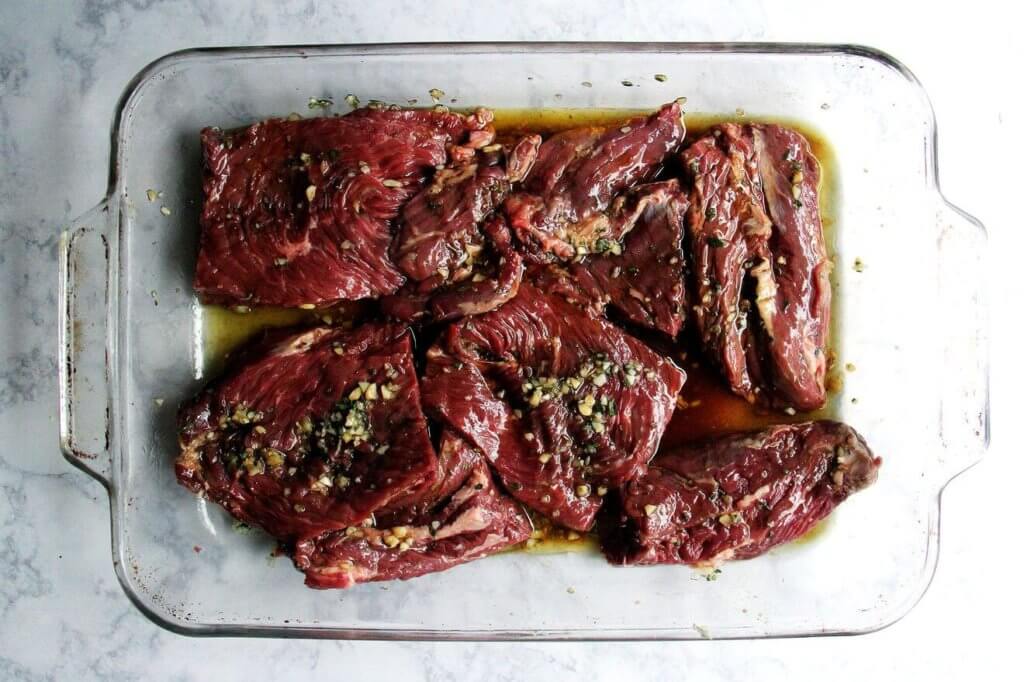
Marinade info mostly sourced from J. Kenji Lopez-Alt’s The Food Lab.
What Ingredients Should Be In A Marinade?
- Oil
- Acid
- Salt or Salty Liquid
- Aromatics, optional
Why Oil?
- It emulsifies a marinade, making it tackier, which allows it to more effectively stick to the meat.
- Ingredients such as onions, garlic, and many spices are oil soluble, meaning their flavors release/disperse best when mixed with oil.
- Oil helps the meat cook evenly, providing a buffer between the heat of the grill and the surface of the meat.
Why Acid?
- Acid is a tenderizer.
- Note, however, excessive acid can “cook” meat and cause it to firm up/turn chalky. When using acid in a marinade, use no more than equal parts acid and oil and limit exposure time to under 10 hours to prevent meat from turning chalky.
Why Salt or Salty Liquid?
- The muscle protein myosin will dissolve in a salty liquid, leaving the meat with a looser texture and a better ability to retain moisture. Soy sauce and Worcestershire sauce, moreover, contain protease, an enzyme that breaks down proteins.
Why Aromatics?
- Aromatics such as garlic, ginger, shallots, scallions, dried spices, herbs, and chilies are mostly for seasoning the surfaces of meat, but they still will provide significant flavor.
How & For How Long to Marinate?
- A ziplock bag with the air squeezed out, which maximizes contact between meat and marinade, is a great tool for marinating, but any vessel you have that will fit the meat snuggly will work. I like using glass bowls or baking dishes, too.
- Marinades do not penetrate very far—no more than a millimeter or two—into meat even over the course of many hours. So, a marinade’s effect is largely limited to the surface of the meat.
- Time-wise, shoot to marinate for at least 1 hour and up to 12 hours. More than 12 hours will cause the meat to get a bit too mushy and chalky around the edges, having a slightly cooked appearance.
Gear For Charcoal Grilling
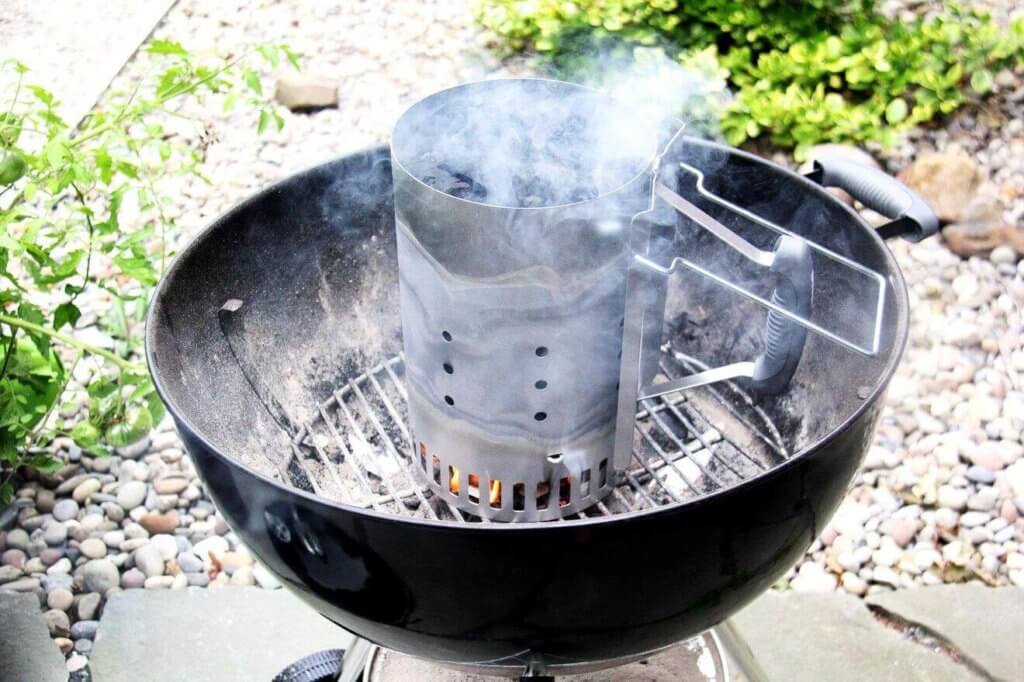
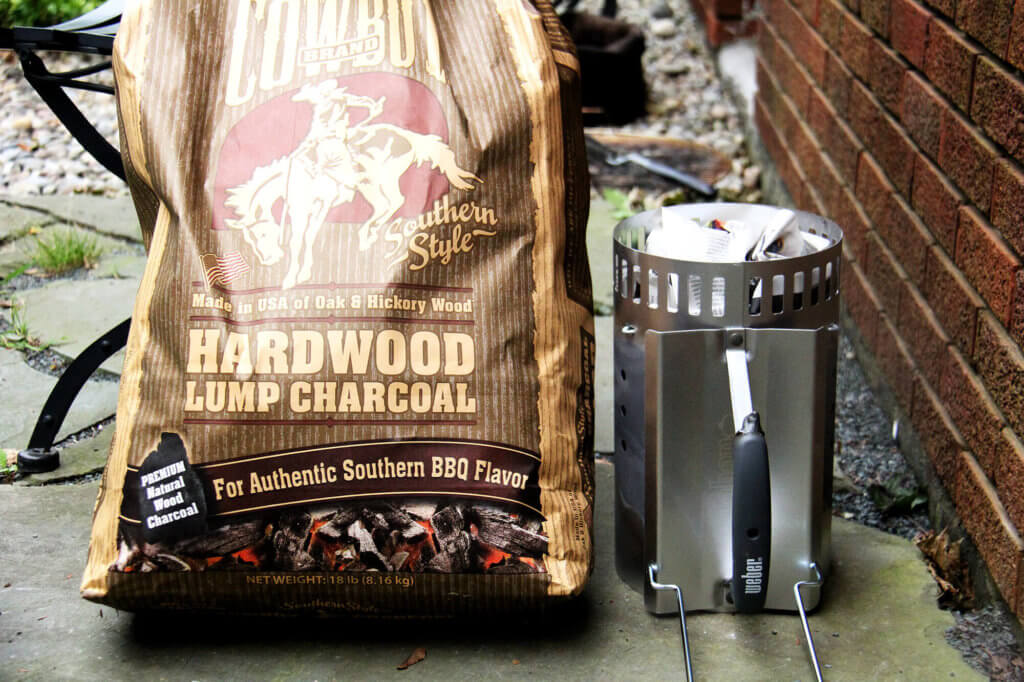
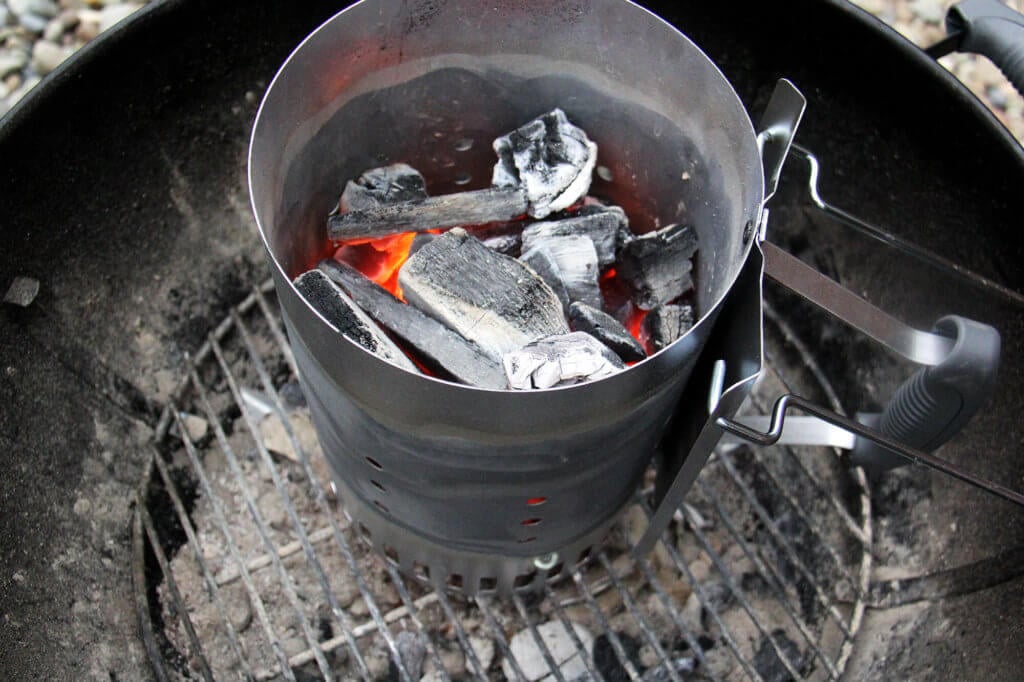
Charcoal Grill
- I own this charcoal Weber, which is a very basic model, but it’s a nice size, and it does the job for the kind of grilling I like to do.
Chimney Starters
- Chimney starters remove the hassle from lighting coals. I suggest investing in a pair of chimney starters. I use 1 full sheet of newspaper per starter. The chimneys look large, but after 30 minutes of heating, the coals burning inside of them shrink, and even for a small amount of food, one chimney-full of coals is rarely enough.
- When the coals have turned white, dump them into the grill, replace the grate, and let the grate heat for at least five minutes before grilling — the hotter the grates, the lower the chances the food will stick.
Charcoal
- Look for Hardwood Lump Charcoal. I like the Cowboy brand (pictured above) — I buy it at Lowe’s. When you buy “hardwood lump charcoal” you know you’re buying real wood: chunks of charred hardwood. Charcoal briquettes also are made of wood, but also a number of other things. I grew up using Kingston; it’s fine; if I can’t make it to Lowe’s, I don’t hesitate to use it.
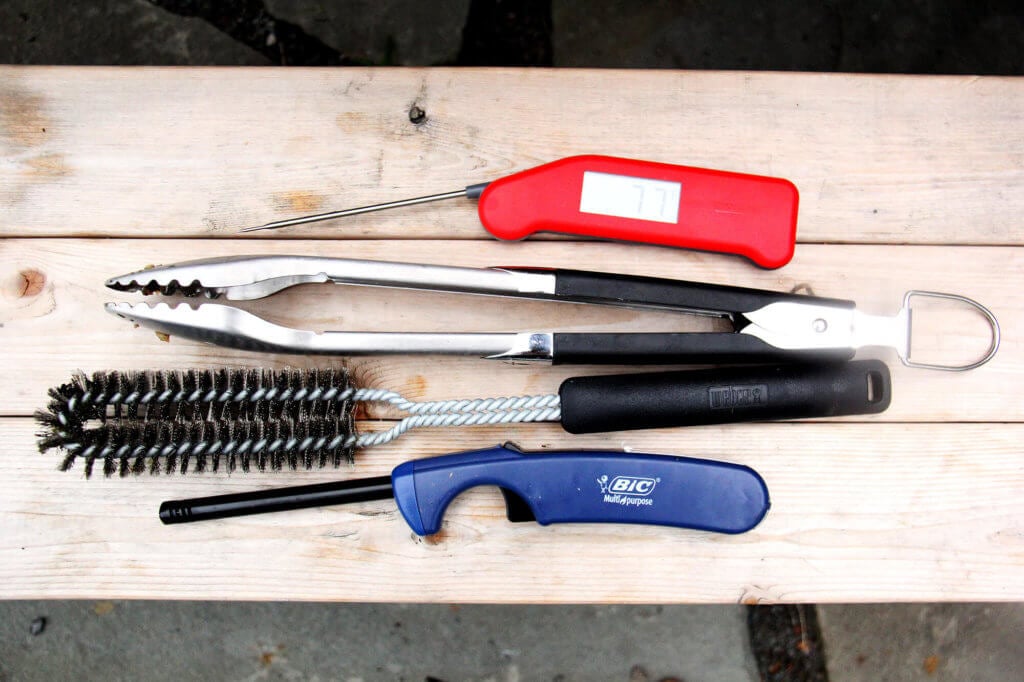
Tongs, Lighter, Brush, Gloves
- Tongs: A pair of long tongs allows you to keep your hands at a distance from the hot coals.
- Lighter: Bic lighters are nice to have on hand for lighting chimney starters.
- Brush: Be careful with grill brushes as the bristles can get stuck on the grill and, in turn, in your food. An alternative is to ball up a sheet of aluminum foil and use tongs to rub the foil ball against the grates.
- Gloves: Protect your arms with heat-resistant gloves.
Instant Read Thermometer
- Thermapen, optional. The Thermapen has been a welcomed addition to my toolbox, the pal standing by my side all summer long (winter, too!), ensuring me over and over again: The meat is done. Take it off the grill.
Charcoal Grilling 101
Note: Remember, this is a minimalist guide to grilling, with tips for cooking cuts of meat and fish that cook quickly such as chicken thighs, cedar planks topped with salmon, whole fish, and thin cuts of beef like skirt or hanger.
Meat Grilling
This is the simple method I employ when grilling meat: chicken, pork, beef, etc.
- Rub meat with aromatics and or seasonings (minced garlic, ginger, shallots, scallions, dried spices, herbs, and chiles).
- Dress with a mix of acid (citrus or vinegar) or salty liquid (Worcestershire or soy) or salt and olive oil.
- Marinate for at least an hour and no more than 12 hours (a little longer is fine).
- Pat dry, then season liberally with salt and pepper before grilling over burning hot coals.
Fish Grilling
- For fish grilling, different rules apply. For salmon and other fatty fish, I may marinate it briefly (20 minutes to an hour). For a whole fish, I won’t marinate it at all. For flaky white fish, I’ll rarely marinate it, but I may rub it lightly with some spices.
Vegetable Grilling
- I am partial to dry-grilling, which calls for grilling vegetables without oil or any seasoning; then dressing them with oil and other seasonings post grilling. I find this technique prevents the vegetables from becoming oil-laden and soggy as well as from taking on an acrid, burnt-oil flavor.
On the Grill
Print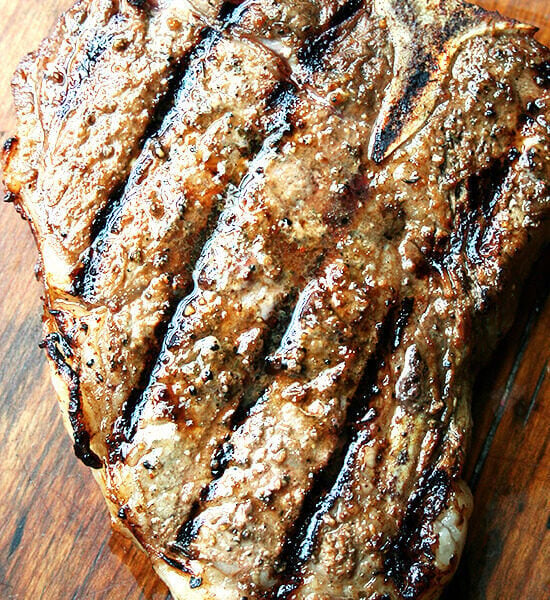
Marinating & Grilling 101: 3-Ingredient Marinade
- Total Time: 5 minutes
- Yield: 1/2 cup
Description
This little marinade — equal parts Worcestershire sauce and olive oil combined with a healthy sprinkling of lemon pepper — is a good one to have on hand this time of year. While you’re busy scraping off your grill grates, refueling your propane tank, perusing your various grill-time-cooking guides, worry not about how you’re going to add flavor to those steaks. This marinade is it. What’s more, it produces just about the best tasting leftovers, though I can’t promise there will be any.
Ingredients
for the marinade:
- 1/4 cup Worcestershire sauce
- 1/4 cup extra-virgin olive oil
- salt-free lemon pepper*
just before grilling:
- kosher salt
Instructions
- Whisk together Worcestershire sauce and olive oil in a bowl or in a vessel in which you plan on using to marinate the steaks. (Alternatively, pour ingredients into a ziplock bag.) Liberally sprinkle steaks on both sides with salt-free lemon pepper. (Note: If you are using lemon-pepper containing salt, do not add any during the marinating process.) Place steaks into bowl with marinade or into ziplock bag and submerge with marinade. Let sit for 20 minutes and up to 24 hours.
Notes
- Salt-free lemon pepper can be hard to find. If you only can find the lemon-pepper containing salt, don’t add it to the steaks until just before grilling. And omit the kosher salt (see steps below).
- You can always make your own lemon pepper, too: For 1 teaspoon lemon pepper substitute 1/2 teaspoon lemon zest + 1/8 teaspoon fine ground pepper
- Prep Time: 5 minutes
- Category: Marinade
- Method: Stir
- Cuisine: American
This post may contain affiliate links. Please read my disclosure policy.

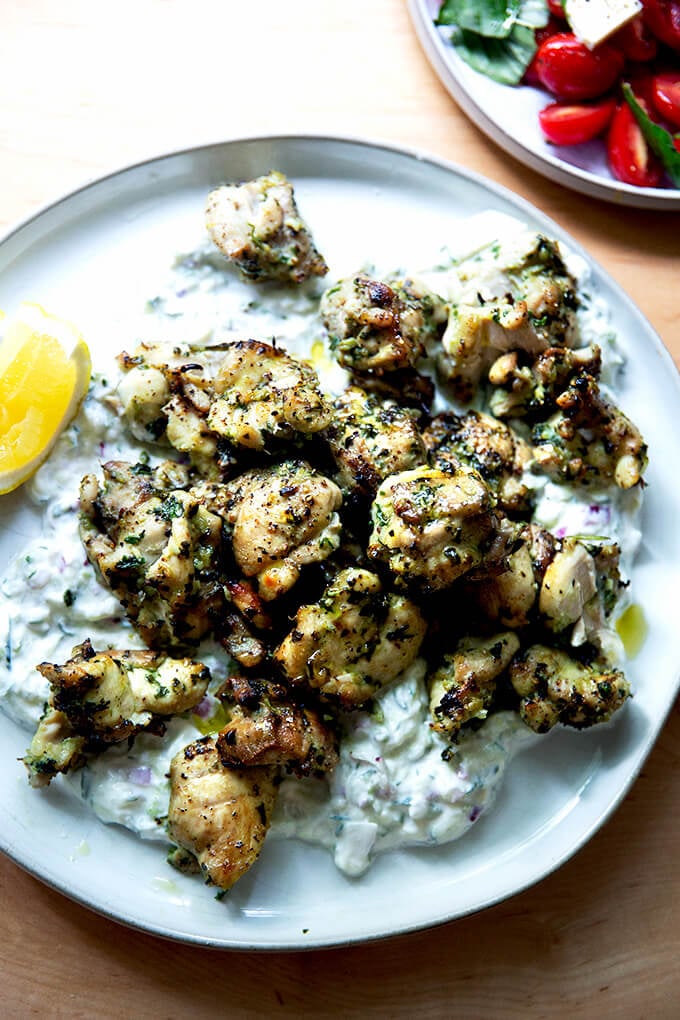
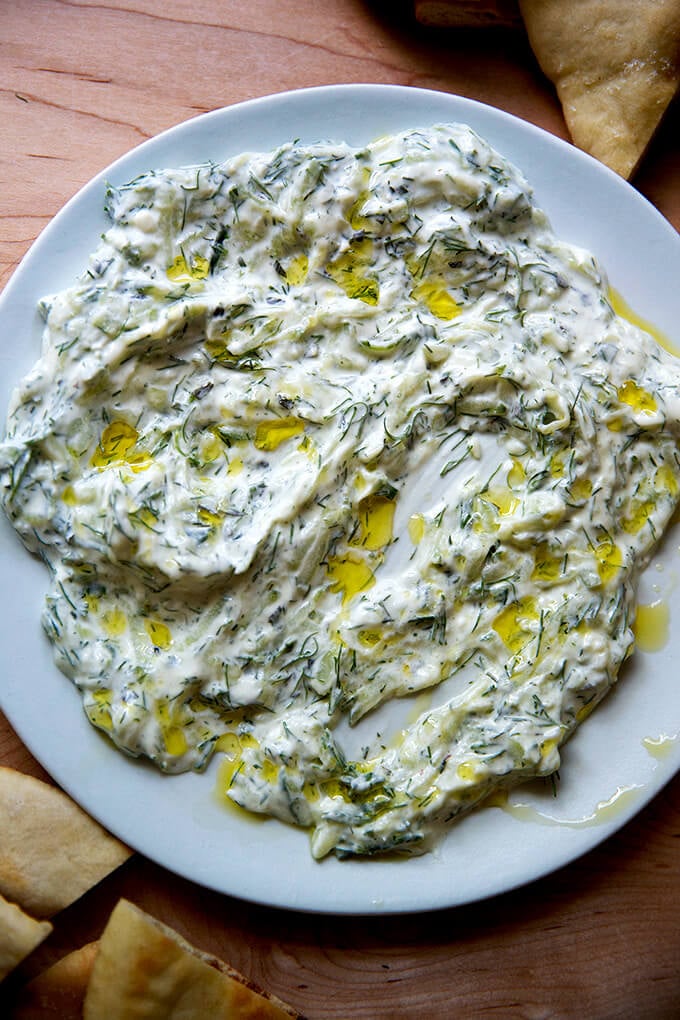
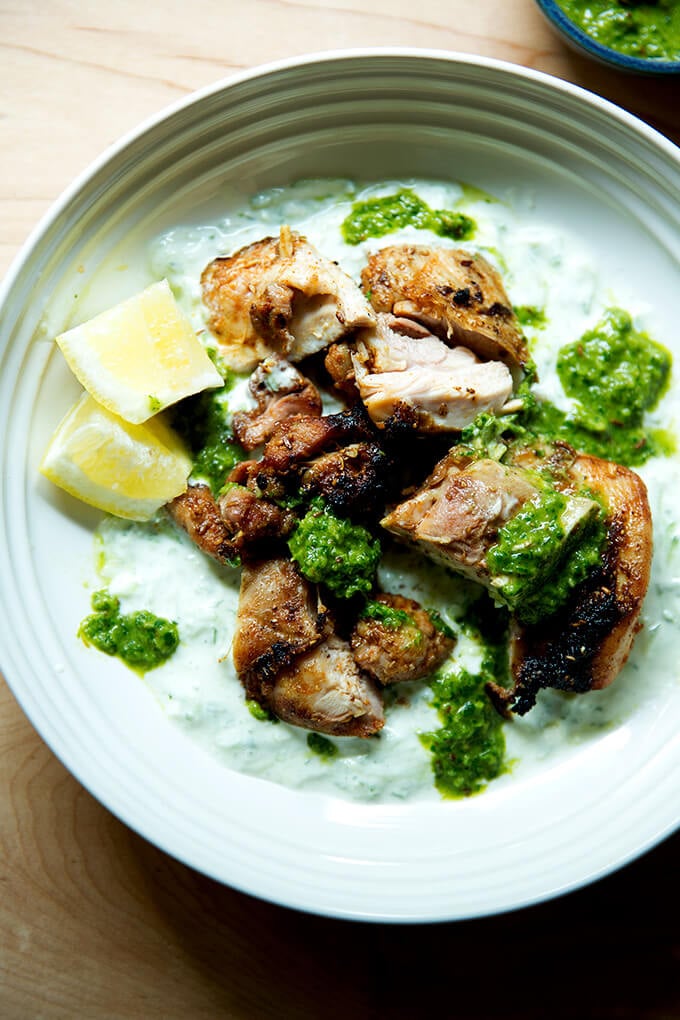
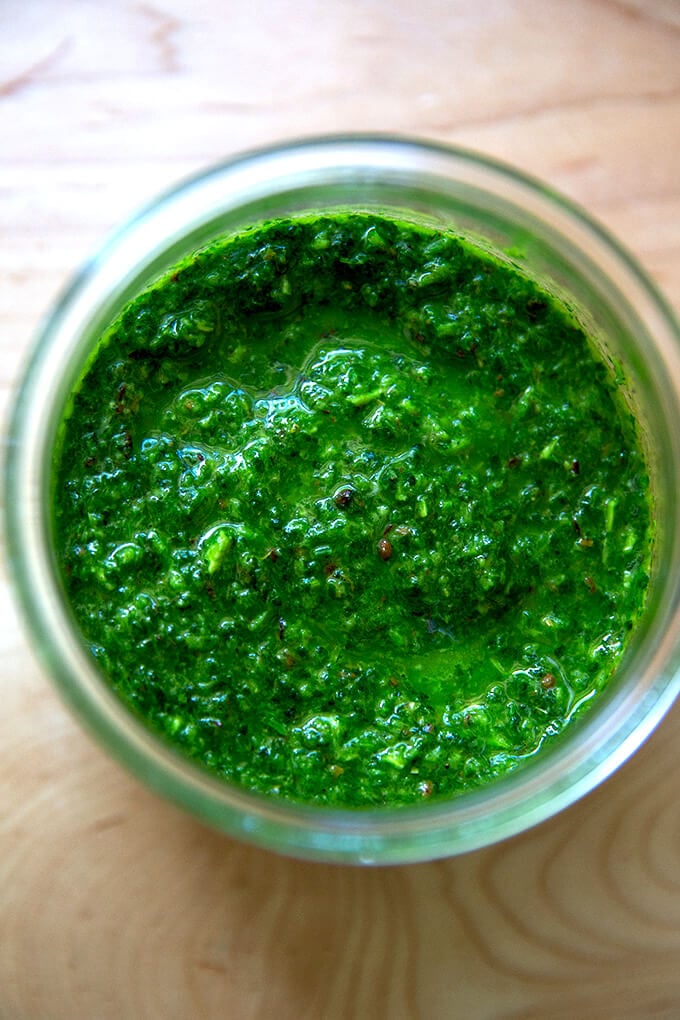
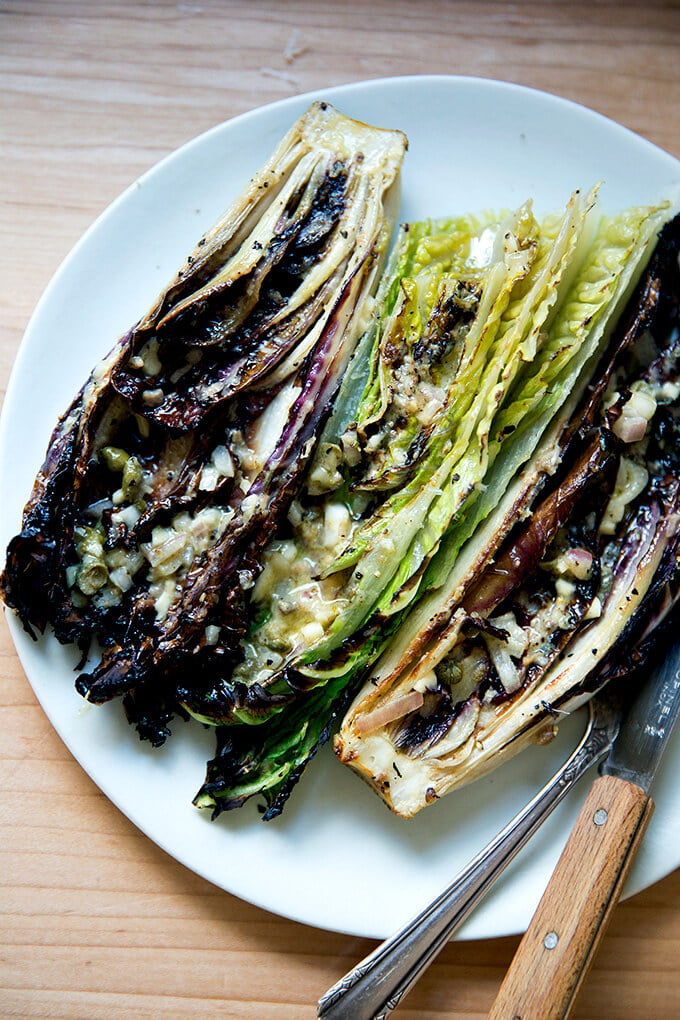
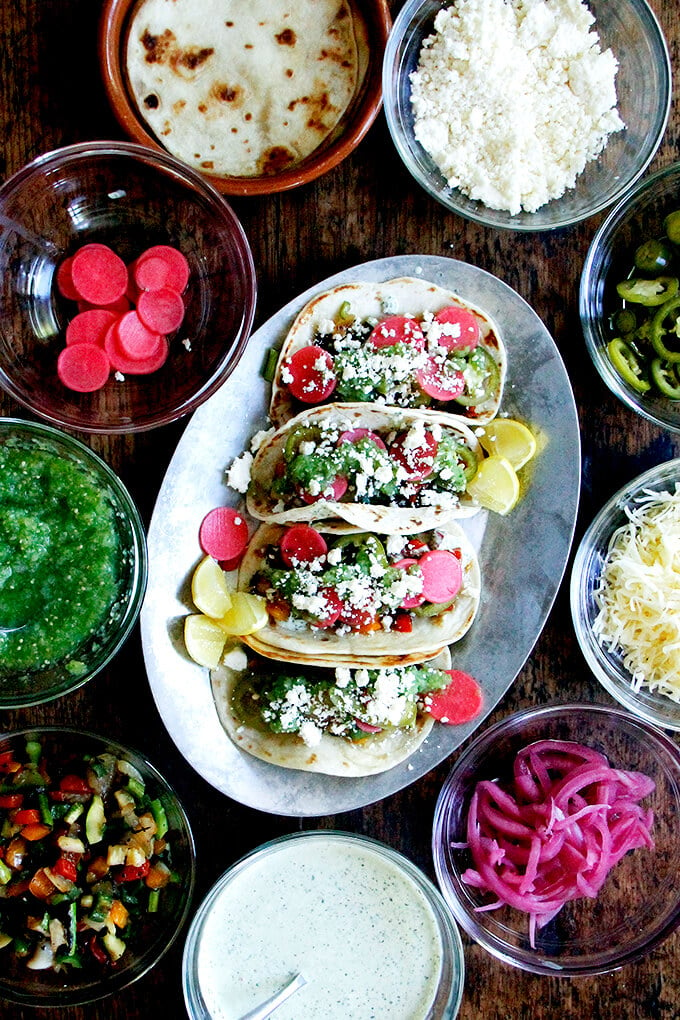
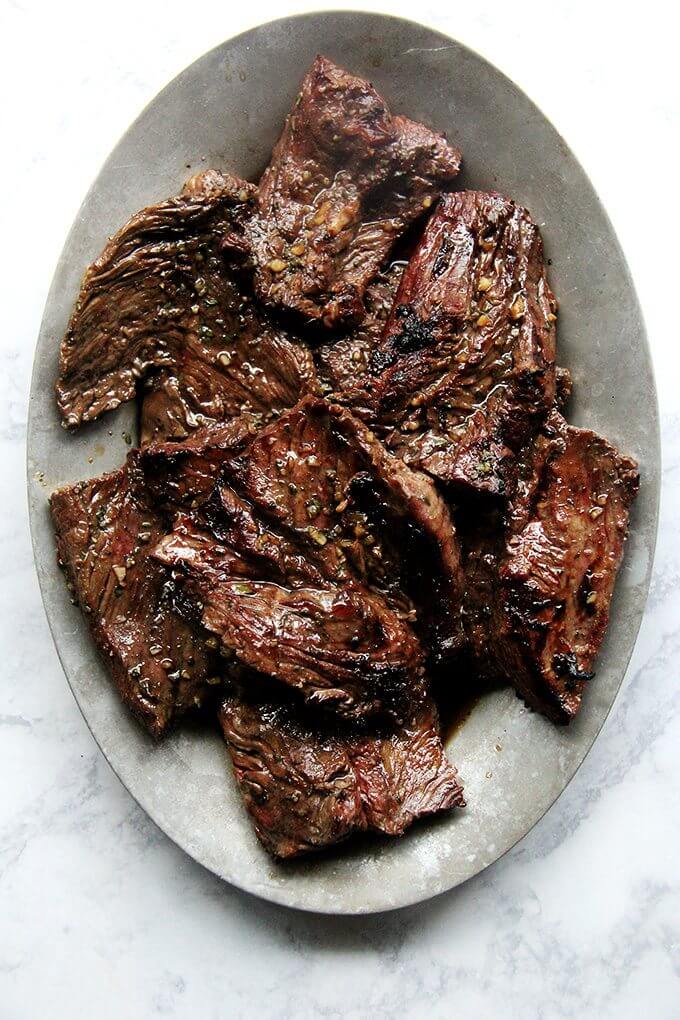
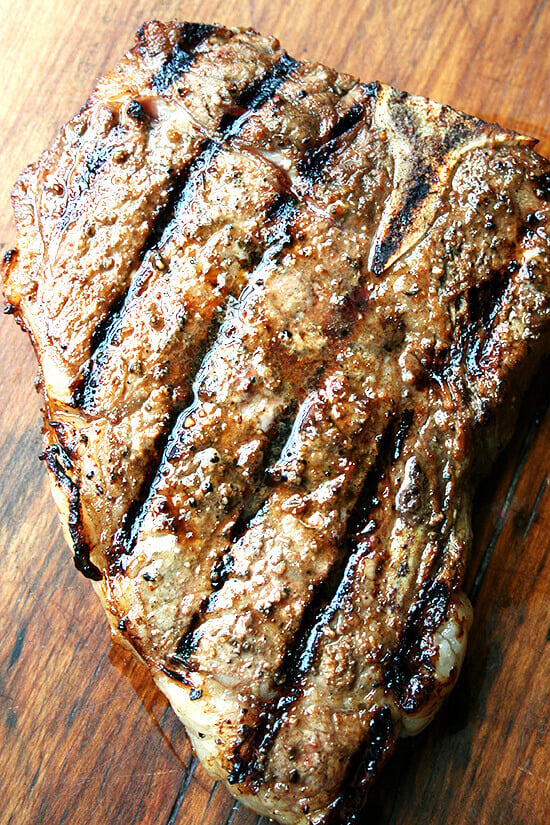
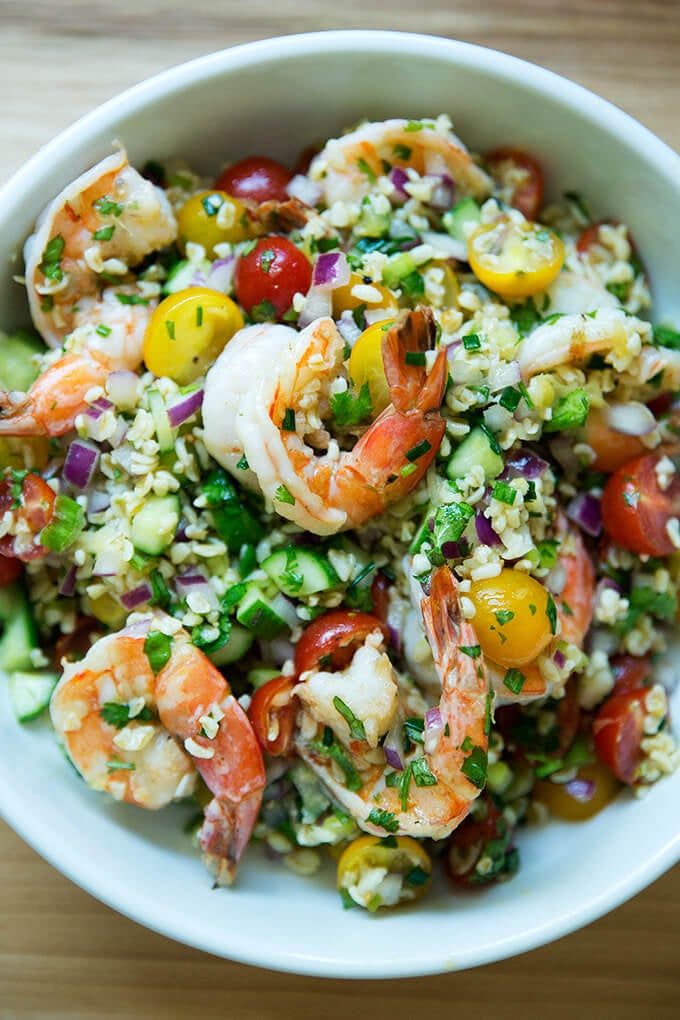
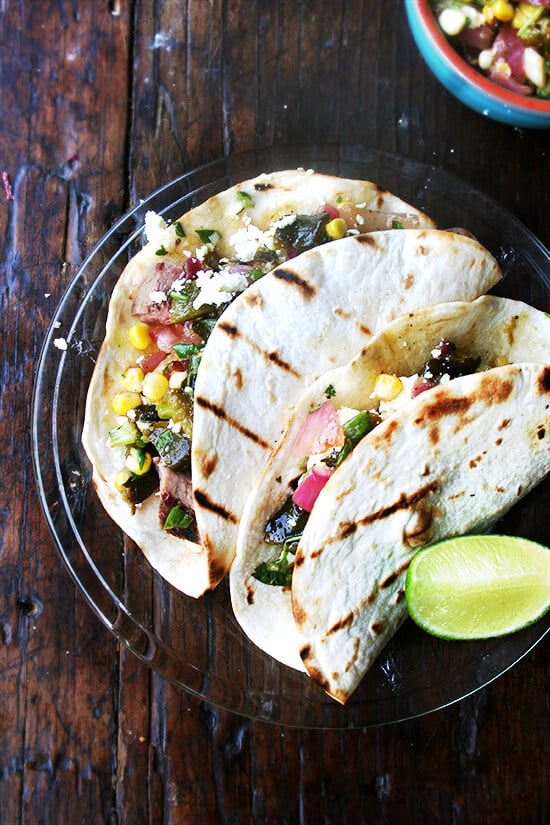
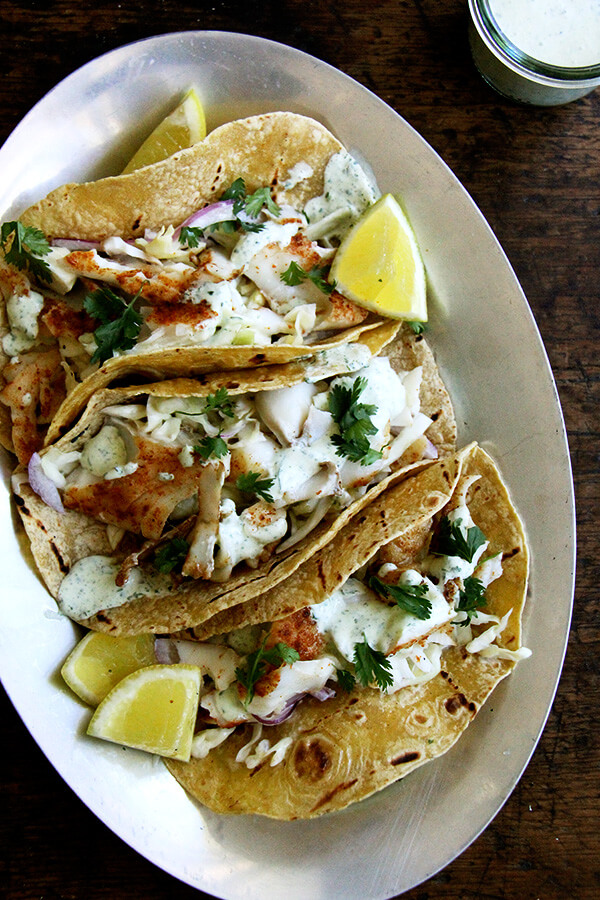






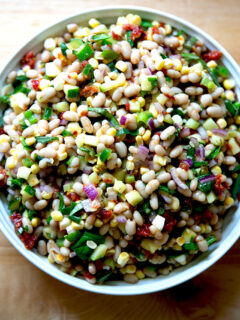
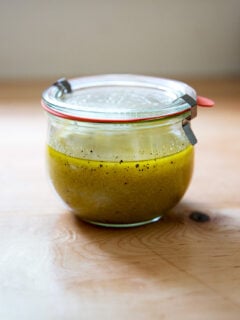

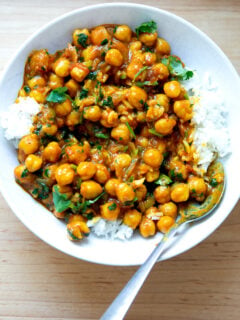

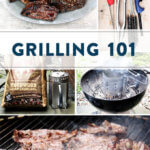
6 Comments on “Marinating & Grilling 101 + Must-Have 3-Ingredient Marinade”
Good article, as usual. Tip; If you don’t have a brush to clean the grates you can wad up some foil and clean with that…there is a school of thought that brushes should not be used as they can lose the tiny bristles and become lodged in your throat or far below…FYI only.
Gary I have heard this! I had totally forgotten, but I should add a link to an article about that … Thank you for the reminder!
My mouth is watering looking at that steak! I am going out to buy some hangar steak today!! Thank you for your amazing recipes – I make so many of them and am always so impressed.
Yay! So happy to hear this, Julie … I love hanger steak. Hope you love it. Thank you for the kind words.
The Larder in Doylestown,PA carries Salt Free Lemon Pepper along with just about any spice you’re looking for. Just bought some yesterday.
Great to hear, Susan! I’m actually not too far from Doylestown as I type … spending the weekend with my sister’s fam outside of Philly 🙂